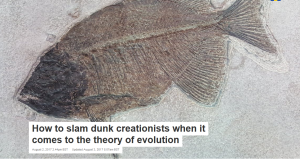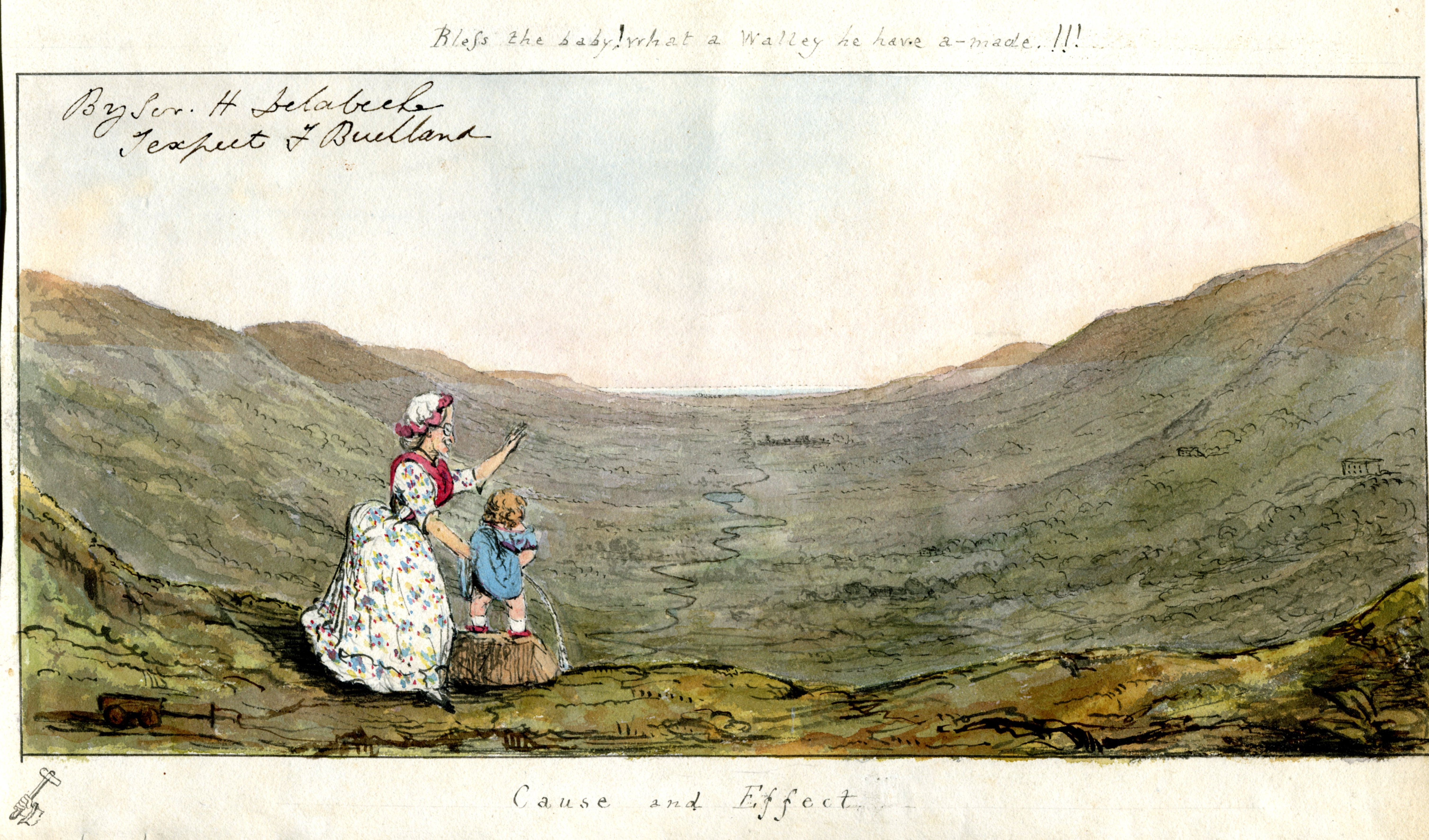Category Archives: Charles Darwin
Darwin, Marx, Satan, and a mythical dedication

In 1954, at the height of the McCarthyite Red Scare, the anti-evolution preacher John R. Rice asked his audience to whom Marx had dedicated The Communist Manifesto. The answer, he shouted out, was Charles Darwin. It is doubtful whether Marx had even heard of Darwin when he and Engels wrote the Manifesto in 1848, but that is the least of Rice’s errors.

Carl Weinberg, in his excellent Red Dynamite, an overview of the deep links between evolution denial and right-wing politics in America, points out that Rice had the wrong book; he should have been referring to Das Kapital. But as we now know, even if he had been he would still have been wrong. Wrong book, wrong date, wrong author, wrong about Darwin’s response to the request to dedicate.
The matter is well summarised by Richard Carter, reporting in The Friends of Charles Darwin on a paper by Margaret Fay in The Journal of the History of Ideas. The same conclusions had been reached, independently, by Lewis Feuer, and Fay’s paper has a long discussion regarding their relative priority, and describing differences of interpretation between them. As for the belief that Marx had wished to dedicate Das Kapital to Darwin, Fay traces this to Isaiah Berlin, probably misunderstanding what Darwin actually did say in a letter to Marx.
There is no doubt that Marx greatly admired Darwin, and sent him a copy of Das Kapital, which Darwin graciously acknowledged, writing, in 1873,
Dear Sir:
I thank you for the honour which you have done me by sending me your great work on Capital; & I heartily wish that I was more worthy to receive it, by understanding more of the deep and important subject of political Economy. Though our studies have been so different, I believe that we both earnestly desire the extension of Knowledge, & that this is in the long run sure to add to the happiness of Mankind.
I remain, Dear Sir
Yours faithfully,
Charles Darwin

A polite response to Marx’s gift and implied admiration, while refraining from taking any position on the merits or otherwise of the subject matter. The volume itself still languishes, with pages uncut, in the library of Darwin’s residence, Down House.
The legend that Marx had offered to dedicate his work to Darwin may also have arisen from another of Darwin’s letters, written in 1880, most probably to Karl Marx’s son-in-law Edward Aveling, with reference to Aveling’s strongly anti-religious The Students’ Darwin.:
Dear Sir:
I am much obliged for your kind letter & the Enclosure.— The publication in any form of your remarks on my writing really requires no consent on my part, & it would be ridiculous in me to give consent to what requires none. I shd prefer the Part or Volume not to be dedicated to me (though I thank you for the intended honour) as this implies to a certain extent my approval of the general publication, about which I know nothing.— Moreover though I am a strong advocate for free thought on all subjects, yet it appears to me (whether rightly or wrongly) that direct arguments against christianity and theism produce hardly any effect on the public; & freedom of thought is best promoted by the gradual illumination of men’s minds, which follow from the advance of science. It has, therefore, always been my object to avoid writing on religion, & I have confined myself to science. I may, however, have been unduly biased by the pain which it would give some members of my family, if I aided in any way direct attacks on religion.— I am sorry to refuse you any request, but I am old & have very little strength, and looking over proof-sheets (as I know by present experience) fatigues me much.
I remain Dear Sir,
Yours faithfully,
Ch. Darwin
Darwin did in fact write about his changing views of religion, and at some length, in an autobiographical memoir intended only for his family, where he tells of his religious faith slipping away from him imperceptibly by degrees. He initially writes of
the extreme difficulty or rather impossibility of conceiving this immense and wonderful universe, including man with his capacity of looking far backwards and far into futurity, as the result of blind chance or necessity. When thus reflecting I feel compelled to look to a First Cause having an intelligent mind in some degree analogous to that of man; and I deserve to be called a Theist.
So to that extent he was, at that time, an advocate of what is now called Intelligent Design, although for some strange reason the modern Intelligent Design movement never lists him among their supporters.
Later, however, he wrote
This conclusion was strong in my mind about the time, as far as I can remember, when I wrote the Origin of Species… But then arises the doubt—can the mind of man, which has, as I fully believe, been developed from a mind as low as that possessed by the lowest animal, be trusted when it draws such grand conclusions? … The mystery of the beginning of all things is insoluble by us; and I for one must be content to remain an Agnostic.
The philosopher Alvin Plantinga has built an entire theory of knowledge on misunderstanding what Darwin is saying here. Darwin is pointing out that a mind arising through evolution would not be equipped to deal with problems loftier than those relating to survival. Plantinga does not seem to realise how an evolving mind would nonetheless be constrained by experience when constructing its model of the everyday world, and applies the term “Darwin’s doubt” to his own curious belief that the correspondence of that model to reality could only have arisen through supernatural intervention. For a more technical discussion of this issue, see e.g. here.
Regarding Christianity, Darwin wrote
I can indeed hardly see how anyone ought to wish Christianity to be true; for if so the plain language of the text seems to show that the men who do not believe, and this would include my Father, Brother and almost all my best friends, will be everlastingly punished.
And this is a damnable doctrine.

Emma Darwin, Charles’s widow, wanted to suppress this passage, on the grounds that surely nobody believed so crude and cruel a version of Christianity any more. Yet that is the version of Christianity preached by John R. Rice, with whom this piece started, and central, as I wrote earlier, following William Trollinger, to the teachings of Answers in Genesis.
The 1880 letter was written seven years later than Marx’s presentation of Das Kapital to Darwin. Moreover, it clearly relates to a work dedicated to attacking religion, which in Das Kapital is a peripheral issue. As with the first letter, we have the formal salutation “Dear Sir”, which of course does not tell us who is being addressed.
Marx’s papers were curated by Marx’s daughter, Eleanor, but the letter was almost certainly not addressed to Marx (which, as we saw before, would have made no sense regarding either content or date) but to Edward Aveling, who became Eleanor’s lover. Aveling did in fact write to Darwin in 1880, offering to dedicate his Student’s Darwin to him, and enclosing excerpts for him to consider. A contemporary review of the work by the biologist George Romanes in Nature shows that Darwin’s criticisms were fully justified:
In itself science has no necessary relation to any such belief; it is neither theistic nor atheistic; it is simply extra-theistic… Therefore, although it may be of use in the interests of “Freethought” to represent science as not merely neutral but negative in its bearings upon religion, the attempt to do so is detrimental to the interests of science; so far as it may be successful it can only tend to increase the suspicious dislike of scientific knowledge which large masses of the general public are already too apt to harbour.
And as we know, that “suspicious dislike” is as powerful and as damaging as ever.
Feuer and Fay published their refutations of the myth of Marx’s request to dedicate in 1975 and 1978 respectively, but nonetheless the myth has persisted in creationist circles. Henry Morris, co-author of The Genesis Flood, and founder of the Institute for Creation Research, referred to it repeatedly long after the story had been laid to rest. Weinberg shows a 2012 photo of a panel at the Institute for Creation Research’s Creation and Earth History Museum in Santee, California, that reads
Karl Marx is considered to be the chief founder of Communism. Although he was a professing Christian in his youth, he became an atheist and (according to some) a Satanist in college. His philosophies of history and economics were squarely based on evolutionism. In fact, he wanted to dedicate his book DAS KAPITAL to Charles Darwin, who had given him what he thought was a scientific foundation for Communism.

Satanism does seem an unlikely pursuit for the father of dialectical materialism, but according to Weinberg the suggestion that Marx had been a Satanist goes back to Richard Wurmbrand, a Romanian anti-Communist dissident. Wurmbrand’s evidence included wordplay in Marx’s juvenilia, and his 1977 book Was Karl Marx a Satanist? refers in the look-inside of its Amazon page to “Karl Marx making the secret societies symbolic gesture of the ‘hidden hand.’ ”
And according to Morris, in his The Long War against God, 1989, Satan’s involvement in promoting evolution, or at any rate a materialism which is part of the same package, dates back from Darwin through the pre-Socratics to Nimrod, the mighty hunter, whom Morris, following John Milton, blames for the catastrophe of Babel. Ken Ham, of Answers in Genesis, younger relative of the Institute for Creation Research, goes further, back to when the serpent (whom Ham, like so many, unbiblically identifies with Satan) first tempted Eve. As the Rev Michael Roberts has pointed out, Milton, rather than the Bible, is the source of much of this creationist theology.
There is an article in the October 2022 issue of Creation magazine, organ of Creation Ministries International, with the title “Darwin, Marx, and two letters”, by Russell Grigg, who like me is a chemist by training, and if anyone reading this has access to the article, I would greatly appreciate hearing what it says. There may yet be more to learn from this old story.
Repost from 3 Quarks Daily
Black swans and other deviations: like evolution, all scientific theories are a work in progress

Discussions about the nature of science and scientific theories are often confused by the outdated view that such theories are rendered false when anomalies arise. The notion of a scientific theory as a static object should be replaced with the more current view that it is part of a living research programme, which can broaden its scope into new areas.
For example, take the hypothesis that all swans are white, which seemed pretty good to Europeans until Dutch explorers found black swans in Australia in 1636. So what happens to our hypothesis? There are a number of options.
1) Redefine swan-ness to include whiteness. Then black swans aren’t really swans, and the hypothesis remains true by definition.
2) It’s been disproved. Discard it.
3) Compare different species of swan the world over, and see how well black swans fit in.
(1) is the least useful. Definitions can only tell us about how we are using words. They tell us nothing about the world that those words attempt to describe. (2) is based on the common-sense idea that hypotheses should be discarded when falsified by observation. This was the idea put forward by philosopher Karl Popper in the 1930s, to distinguish between science and pseudoscience.
Read the rest of this entry“Gold of the gaps”, the Discovery Institute, and Intelligent Design
 This from Matt Young on pandasthumb:
This from Matt Young on pandasthumb:
Gold of the gaps
Does gold have a purpose? asks an unnamed author in Evolution News & Science Today. The author goes on to observe that there is more gold on earth than astrophysicists can account for and also that gold has risen to the surface of the earth faster than might be expected. They go on to note the “availability of many essential elements at the surface of the earth …” and also discuss the use of gold in medicine. They are somewhat breathless at the discovery that the body can metabolize gold:
Gold nanoparticles, which are supposed to be stable in biological environments, can be degraded inside cells, [boldface in original]
even though, as they note, gold salts have been used for decades in the treatment of rheumatoid arthritis.
At any rate, the article stresses the “mystery of biological gold” and claims several hints why gold may have a purpose: its abundance and seemingly unlikely transport to the surface of the earth, the ability of cells to “metabolize” [sic] gold, the fact that gold persists in the body, and the usefulness of gold for therapeutics. The conclusion of the article is Read the rest of this entry
Evolution, creationism, and US VP Mike Pence
Mike Pence is a highly intelligent and extremely able trial lawyer, and a committed creationist. As I write, he is one heartbeat (or should we now say one breath?) away from being President of the United States, and in the event that Donald Trump manages to retain power in November, will be his heir apparent. Here is what I wrote about his stated views on creationism and evolution not long after he was sworn in as Vice-President. I hope that four weeks from today all of this will be of historical interest only, and am reposting this in order to help make that happen.
Above: Donald Trump risen from his hospital bed to reveal himself to his followers (Getty Images via Business Insider)
 The now Vice-President of the United States stands accused of having said that evolution is “just a theory”; see here and here. No he did not say that. What he did say (full text below, with notes) was far, far worse. Much more detailed, much more closely argued, and much more dangerous. Read the rest of this entry
The now Vice-President of the United States stands accused of having said that evolution is “just a theory”; see here and here. No he did not say that. What he did say (full text below, with notes) was far, far worse. Much more detailed, much more closely argued, and much more dangerous. Read the rest of this entry
A new argument against evolution
This from the Hebrides News:
If, as evolutionists claim, all of mankind evolved from the same primitive life-source, then how did we end up with 7,000 different languages? The Bible teaches in Genesis 11: 7-,9 that God created all the different languages at Babel…
If mankind had advanced through a so-called evolutionary process, then there should still be developing languages today. However, the stark fact is mankind’s languages are vanishing from civilization at an alarming rate – thus proving that evolution is a lie. And if evolution were true, then the process by which mankind has obtained 7,000 languages would be continuing today. Has the evolutionary process ceased? According to the Bible it never happened in the first place.
The Earth, of course, is 6,000 years old. As for purported evidence to the contrary, Read the rest of this entry
The Case Against Evolution – turning Chick on its head!!
From Old Earth Ministries by way of my friend Michael Roberts. Covers the scientific bases clearly and comprehensively, before exposing the contorted theology of Young Earth Creationism, and the arrogant presumption of its claim that evolution is incompatible with Christianity.
Disclosure: I see difficulties with religious beliefs, but these are not increased (perhaps the contrary) by our knowledge of evolution, and since they are not my difficulties it is not my place to comment on them, other than to point out that the YECist claim to “own” Christianity (or any other religion) is plainly false
Peddling and Scaling God and Darwin
Another good strip cartoon arguing for evolution in the style of Jack Chick – without the spite
Source: The Case Against Evolution
What the Bishop said to the Biologist; a Victorian scandal revisited
Yes, Bishop Wilberforce really did ask TH Huxley, “Darwin’s bulldog”, whether he would prefer an ape for his grandfather, and a woman for his grandmother, or a man for his grandfather, and an ape for his grandmother. And Huxley really did say that he would prefer this to descent from a man conspicuous for his talents and eloquence, but who misused his gifts to ridicule science and obscure the light of truth. This and more at the very first public debate regarding Darwin’s work on evolution, only months after the publication of On the Origin of Species.
L: The Oxford Museum of Natural History, where the event took place. Click on this and other images to enlarge
The debate took place at the May 1860 meeting of the British Association for the Advancement of Science. The actual exchange is whitewashed out of the account of the meeting in the gentlemanly Athenaeum, leading some historians to wonder whether it really occurred, but a recently rediscovered contemporary account places the matter beyond doubt. What I find even more interesting, however, is the way in which argument and counter-argument between Wilberforce and Huxley, and between other supporters and opponents of the concept of evolution, prefigure arguments still being used today.
R: 150th anniversary commemorative plaque, outside the Museum
The Athenaeum account is freely available here. The fuller account, Read the rest of this entry
How to learn from creationists
 “The wise learn from everyone.”1 The freak success (half a million reads) of my recent piece How to slam dunk creationists, and the subsequent discussion, have again set me thinking about how to learn from creationists. It is not enough to say, as Dawkins notoriously said, “[I]f you meet somebody who claims not to believe in evolution, that person is ignorant, stupid or insane (or wicked, but I’d rather not consider that).” Conversation is a two-way street, I have certainly learnt from creationists’ attacks on evolution, and if I am learning from them it is at least possible that they are learning from me.
“The wise learn from everyone.”1 The freak success (half a million reads) of my recent piece How to slam dunk creationists, and the subsequent discussion, have again set me thinking about how to learn from creationists. It is not enough to say, as Dawkins notoriously said, “[I]f you meet somebody who claims not to believe in evolution, that person is ignorant, stupid or insane (or wicked, but I’d rather not consider that).” Conversation is a two-way street, I have certainly learnt from creationists’ attacks on evolution, and if I am learning from them it is at least possible that they are learning from me.
Types of comment
Comments I have had from creationists fall into three broad groups (and note that contrary to what Dawkins says, some of these are at least partly informed, highly intelligent, and completely rational):
1) Simple misstatements
2) Appeal to the Bible
3) Purportedly scientific arguments, some without merit, while others refer to important issues.
From simple misstatements, not very much can be learnt, except perhaps the source of the misinformation. Remember that if someone quotes wrong information, the burden of proof is not on you but on them. Leave it there, as in this actual exchange: Read the rest of this entry
Darwin’s Boulders
From my friend the Rev Michael Roberts. How Buckland and then Darwin, exploring in Wales, came to accept Agassiz’ Ice Age theory, with Michael’s own stunning images of locales. And no kittens, I’m afraid, but a field assistant [sic] dog
Peddling and Scaling God and Darwin
In June 1842 Charles Darwin undertook his last geological field trip. He was at his father’s house, The Mount in Shrewsbury, that month and after a winter of sickness, he felt somewhat better. Thus, he went in his gig to Snowdonia to assess whether Buckland was correct in identifying proof of a former Ice Age. In October 1841 William Buckland travelled to Wales with Thomas Sopwith (his grandson designed the Sopwith Camel, a WW1 fighter plane) to see whether Agassiz could be right about a former Ice Age. In a few days of horrendous Welsh weather Buckland identified all the main glacial troughs

Buckland dressed for Welsh Glaciers by Thomas Sopwith

View from top of Y Garn 3104ft showing the Llugwy trough leading to Capel Curig, Llyn Idwal, a morainic lake.
To the left is Nant Francon, viewed below – with embellishments.


In 1831 de la Beche painted this watercolour…
View original post 502 more words
Creationist nonsense on geology; the odd case of Prof McIntosh D.Sc.
Catastrophism versus gradualism; this controversy was laid to rest by TH Huxley in his 1869 Address to the Geological Society, but UK Young Earth Creationists persist in parading the corpse as if it presented a living challenge to current thinking. Perhaps it appeals to their absolutist binary mindset.
McIntosh himself is a member of the group mendaciously mislabelled Truth in Science, which distributed the equally mendacious neo-creationist tract Exploring Evolution to UK schools some years ago, and is an author of the error-saturated Origins, Examining the Evidence, published by that group. BCSE has published a detailed review of Exploring Evolution here.
This piece by my friend, the geologist historian Anglican priest Michael Roberts, will tell you more about McIntosh’s writing than you wish to know, but will convey a wealth of fascinating geological and historical information in the process.
Peddling and Scaling God and Darwin
THE GEOLOGY OF GENESIS FOR TODAY

One of the best selling British creationist books is Genesis for Today by Andy McIntosh, which is now in its 5th edition. https://www.dayone.co.uk/products/genesis-for-today
Most of the book is a popular exposition of Genesis 1 to 11 – and some of it I agree with, but not his insistence that it is literal history.
In Genesis for Today McIntosh gives three scientific appendices, which are much the same in the 1st and 5th editions. I could either go through and nit-pick his geological errors or consider them under main headings. I have chosen the latter.

Most would think that a professor in a scientific discipline at a leading university (with a first-rate geology department) would be able to make a reasonable showing on geology.Many amateurs and non-geologists I’ve met in geological societies have a clear grasp.
From the whole of his book, other writings and…
View original post 2,117 more words